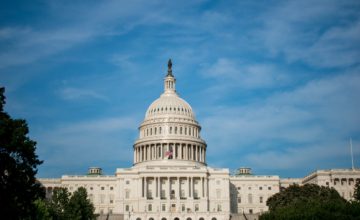Since 1995, Early Head Start has been an essential part of the Head Start program, providing comprehensive services to meet the needs of nearly 250,000 babies, toddlers, and their parents every year—including pregnant women.
Early Head Start is specifically built to meet the developmental needs of infants and toddlers facing the biggest barriers to learning and growth, helping parents meet their child’s early learning needs. It’s been proven to work, especially for the families who need it most.
EHS programs offer a wide array of child and family development services, including center- or home-based early learning experiences, health and developmental screenings, nutritious food, parenting resources and support, and access to health, mental health, and social services. EHS is the only federal program specifically focused on the early education experiences of low-income babies and toddlers.
Download the briefs below to learn more about how states are Building Sustainable Supply Structures to Expand Access to Early Head Start and how states are building Early Head Start – Child Care Partnerships to increase access to high-quality early care and education for infants and toddlers.




